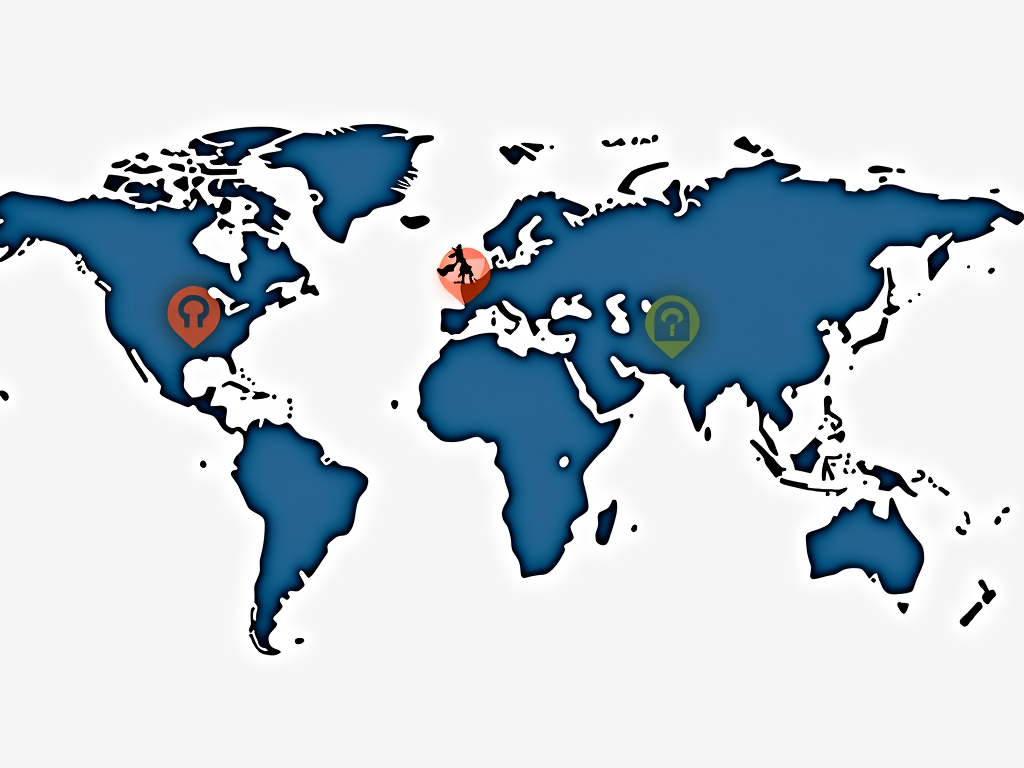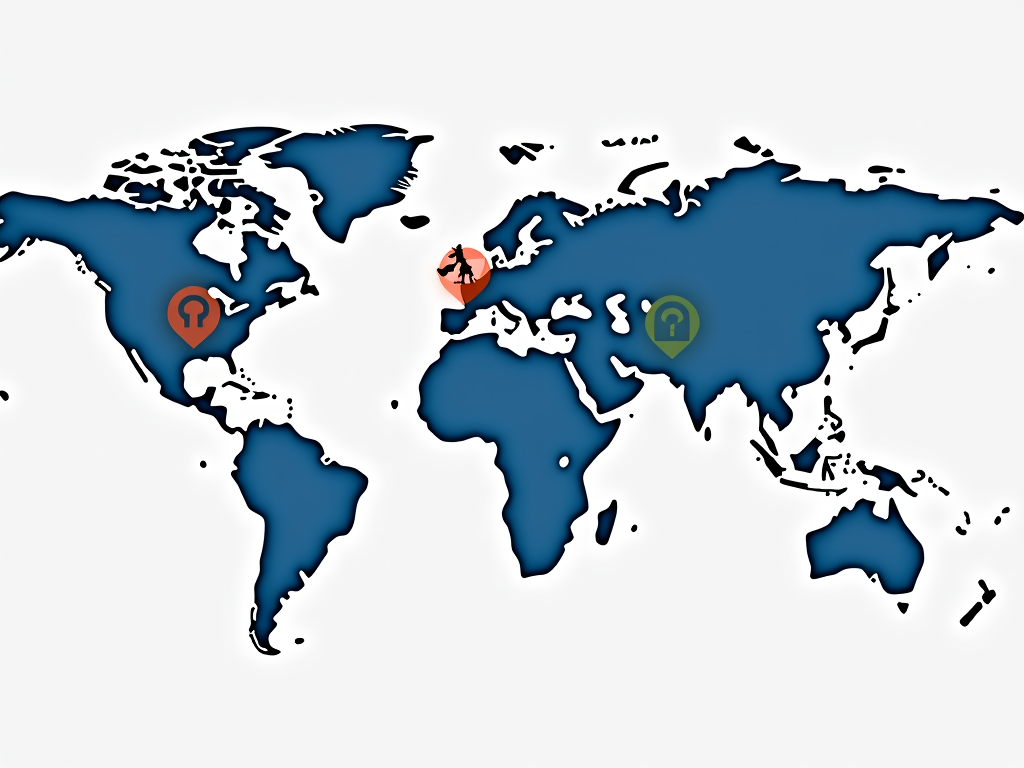Navigating the Complex World of Online Privacy Laws
In an era where our lives are increasingly digital, understanding online privacy laws has never been more crucial. These laws vary significantly across the globe, reflecting diverse cultural attitudes towards privacy and data protection. From the stringent regulations of the European Union's GDPR to the sector-specific approaches in the United States, navigating this complex landscape can be daunting. This article delves into the key online privacy laws around the world, their implications for individuals and businesses, and the essential tools you need to safeguard your digital privacy.

The Global Patchwork of Privacy Regulations
Online privacy laws are as diverse as the countries that implement them. Here's a closer look at some of the most significant regulations:
Europe's GDPR: The Gold Standard
The General Data Protection Regulation (GDPR) is often hailed as the most comprehensive privacy law in the world. Enacted in 2018, it applies to all EU member states and has extraterritorial reach, affecting any organization handling EU citizens' data.
Key features of GDPR include: - Right to be forgotten: Individuals can request the deletion of their personal data. - Data portability: Users can transfer their data between service providers. - Breach notification: Companies must inform authorities of data breaches within 72 hours.
The GDPR has set a precedent, inspiring similar laws in other regions and raising the bar for data protection globally.

California's CCPA: A Step Forward for U.S. Privacy
The California Consumer Privacy Act (CCPA), effective since 2020, is one of the strongest privacy laws in the United States. It grants California residents unprecedented control over their personal information.
Notable CCPA provisions: - Right to know: Consumers can request details about the data collected about them. - Right to delete: Similar to GDPR, users can ask for their data to be erased. - Opt-out of sale: Individuals can prevent companies from selling their personal information.
While not as far-reaching as GDPR, the CCPA represents a significant shift in U.S. privacy legislation and has influenced other states to consider similar measures.

Other Notable Privacy Laws
Beyond Europe and California, several countries have implemented robust privacy frameworks:
- Brazil's LGPD: Modeled after GDPR, the Lei Geral de Proteção de Dados Pessoais protects Brazilian citizens' data rights.
- Canada's PIPEDA: The Personal Information Protection and Electronic Documents Act governs how private sector organizations handle personal information.
- Australia's Privacy Act: Recently updated to include stronger penalties for data breaches and enhanced consumer rights.
Each of these laws reflects the growing global consensus on the importance of data privacy, albeit with regional nuances.

The Impact on Individuals and Businesses
Online privacy laws have far-reaching implications for both individuals and organizations:
For Individuals
- Greater control: Laws like GDPR and CCPA empower users to manage their personal data more effectively.
- Increased transparency: Companies must disclose their data collection and usage practices.
- Enhanced security: Stricter regulations often lead to better data protection measures.
However, navigating these rights can be complex, and many users remain unaware of the protections available to them.
For Businesses
- Compliance challenges: Adapting to multiple, sometimes conflicting, privacy laws can be resource-intensive.
- Global operations: Companies must often comply with the strictest applicable law, which can be costly.
- Innovation vs. regulation: Balancing data-driven innovation with privacy requirements is an ongoing struggle.
Despite these challenges, businesses that prioritize privacy can gain a competitive edge by building trust with their customers.

Essential Online Privacy Tools for Beginners
While laws provide a framework for protection, individuals must also take proactive steps to safeguard their online privacy. Here are some essential tools for beginners:
- Virtual Private Networks (VPNs)
- Encrypt your internet connection
- Mask your IP address
-
Protect data on public Wi-Fi networks
-
Password Managers
- Generate and store strong, unique passwords
-
Reduce the risk of account breaches
-
Encrypted Messaging Apps
- Use end-to-end encryption for communications
-
Popular options include Signal and WhatsApp
-
Privacy-Focused Browsers
- Block trackers and ads
-
Examples include Brave and Firefox
-
Two-Factor Authentication (2FA)
- Add an extra layer of security to your accounts
- Use authenticator apps or hardware keys for best protection
By incorporating these tools into your digital routine, you can significantly enhance your online privacy and security.

The Future of Online Privacy
As technology evolves, so too must our approach to privacy. Emerging trends and challenges include:
- AI and machine learning: These technologies raise new questions about data usage and consent.
- Internet of Things (IoT): Connected devices expand the attack surface for privacy breaches.
- Cross-border data flows: Harmonizing privacy laws across jurisdictions remains a significant hurdle.
Policymakers, businesses, and individuals must work together to address these challenges and ensure that privacy remains a fundamental right in the digital age.

In conclusion, understanding online privacy laws is essential in today's interconnected world. While regulations like GDPR and CCPA provide important protections, individuals must also take responsibility for their digital footprint. By staying informed and utilizing essential privacy tools, you can navigate the complex landscape of online privacy with confidence.
Remember, your data is your digital fingerprint—protect it wisely.